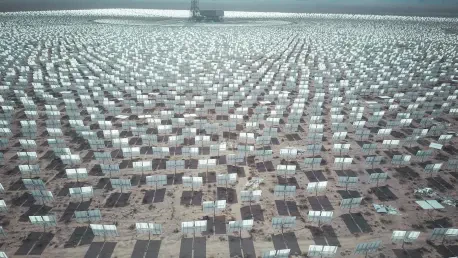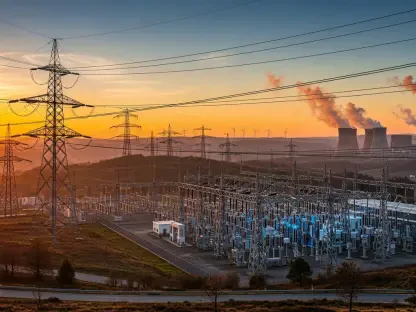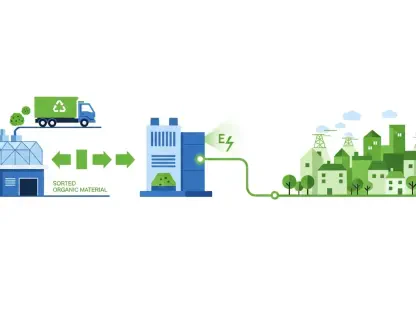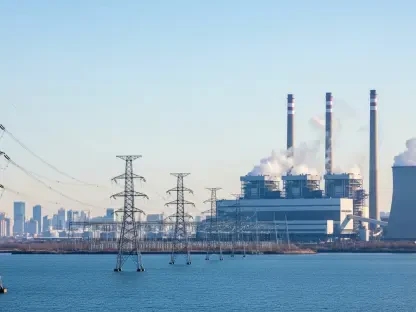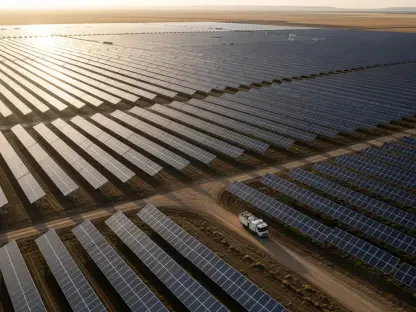Setting the Stage for a Green Powerhouse
Nigeria stands at a critical juncture in 2025, grappling with an energy access gap that affects millions while holding immense potential to reshape Africa’s renewable energy landscape. With over 200 million people, the nation faces a staggering deficit in reliable electricity, yet its abundant solar, wind, and mineral resources position it as a potential leader in clean energy. This market analysis delves into Nigeria’s strategic moves to attract substantial investments and build a sustainable energy ecosystem, as highlighted during a landmark forum in Abuja. The purpose is to assess the trends, challenges, and projections that could define Nigeria’s role in Africa’s green revolution.
The significance of this analysis lies in understanding how Nigeria’s energy transition can drive economic growth and regional influence. By examining recent investment pledges, policy reforms, and industrial plans, this piece aims to forecast the trajectory of the country’s renewable sector. The focus is on how these developments could bridge domestic energy gaps and set a benchmark for other African nations, offering insights into market opportunities and risks for stakeholders.
Deep Dive into Market Trends and Projections
Investment Surge: Fueling Nigeria’s Renewable Ambitions
Nigeria’s renewable energy market is witnessing a pivotal shift with a recent commitment of over $400 million in investments, announced at a major industry forum in Abuja. This capital injection targets key areas such as solar panel production, smart meters, and battery storage, with projections to create over 1,500 direct jobs in the near term. The government estimates a need for $23 billion to address energy access challenges and achieve a target of 277 gigawatts of installed capacity by 2060, signaling a long-term market opportunity for investors. This financial momentum reflects growing confidence in Nigeria’s potential to become a renewable energy hub.
However, the scale of funding required presents significant challenges. Investor confidence hinges on stable policies and transparent governance to mitigate risks in a historically volatile market. Comparative data from other African markets, like South Africa, shows that sustained government incentives can accelerate renewable adoption, suggesting Nigeria must prioritize regulatory consistency. The current investment wave, while promising, is just the beginning of a broader effort to transform the energy sector into a cornerstone of economic development.
Localized Production: Building a Self-Reliant Energy Chain
A defining trend in Nigeria’s renewable market is the push toward localized production under the “Nigeria First” industrial plan. This strategy focuses on establishing solar panel assembly plants in cities like Lagos and battery recycling hubs in industrial zones, aiming to reduce import dependency and lower costs. Market projections indicate that domestic manufacturing could cut renewable technology costs by up to 20% over the next five years from 2025 to 2030, fostering a competitive edge in the African market. This move also aligns with global trends favoring supply chain resilience.
The potential for job creation and economic diversification through localized production is substantial, yet barriers remain. High initial setup costs and limited technical expertise could slow progress, necessitating partnerships with international firms for technology transfer. Analysis of similar initiatives in markets like India reveals that skills training and phased implementation are critical to success. For Nigeria, balancing cost with innovation will be key to sustaining growth in this segment of the renewable energy market.
Decentralized Markets and Regional Growth Dynamics
Another emerging trend is the decentralization of Nigeria’s energy market, supported by policies promoting a competitive and inclusive electricity framework. The Ministry of Power is driving initiatives to empower state governments in developing renewable industrial clusters, which could serve as engines for green growth. Market analysis suggests that southern states, with better infrastructure, are likely to adopt renewable solutions faster than northern regions, creating regional disparities in market penetration. Tailored strategies, blending solar mini-grids and other technologies, are essential to address these gaps.
Regional collaboration across Africa also plays a crucial role in market expansion. Partnerships with international stakeholders, including European nations, are facilitating knowledge exchange and funding for large-scale projects. Forecasts indicate that such collaborations could boost Nigeria’s renewable capacity by 15% by 2030 if current momentum holds. However, the risk of policy misalignment across regions underscores the need for harmonized frameworks to ensure equitable market growth and energy access.
Technological Innovation and Economic Impacts
Technological advancements are set to redefine Nigeria’s renewable energy market, with innovations in battery storage and smart metering gaining traction. These technologies, backed by recent investments, are projected to enhance energy reliability and reduce grid dependency, particularly in rural areas. Market trends suggest a growing demand for community-driven energy systems, with mini-grids expected to account for 30% of new installations by 2030. This shift could position Nigeria as a testing ground for scalable renewable solutions across Africa.
Economically, the renewable sector promises a wave of green jobs and industrial growth. Projections estimate that sustained investment and policy support could create tens of thousands of jobs by the end of the decade, transforming Nigeria’s workforce. Yet, the market faces risks from global supply chain disruptions and fluctuating raw material costs for clean tech. Strategic planning, including incentives for local manufacturers, will be vital to maintaining economic momentum and capitalizing on these emerging opportunities.
Reflecting on Nigeria’s Renewable Energy Trajectory
Looking back, the recent forum in Abuja marked a turning point for Nigeria’s renewable energy market, with $400 million in investments signaling strong market interest and government commitment. The focus on localized production, decentralized energy systems, and technological innovation laid a robust foundation for addressing longstanding energy deficits. These developments underscored Nigeria’s potential to lead Africa’s clean energy transition, supported by international partnerships and policy reforms.
Moving forward, stakeholders should prioritize actionable strategies to sustain this progress. Governments must ensure consistent regulatory frameworks to build investor trust, while businesses and communities are encouraged to invest in skills training to seize job opportunities. Investors should focus on long-term partnerships, targeting regional industrial clusters for maximum impact. Additionally, embracing small-scale solar solutions can empower consumers to reduce grid reliance. These steps, if implemented effectively, could cement Nigeria’s position as a frontrunner in Africa’s renewable energy market, paving the way for a sustainable and inclusive energy future.
